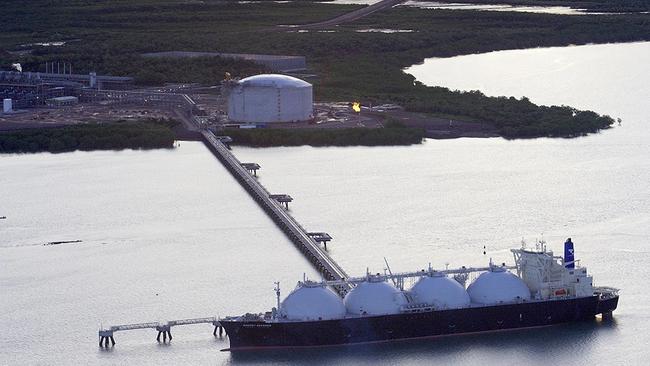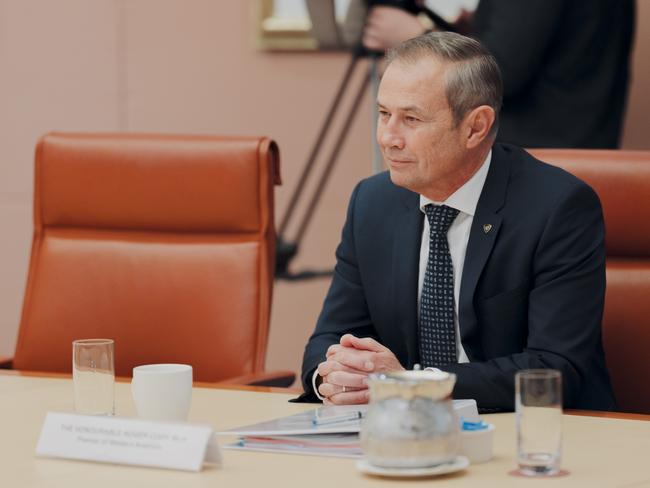WA loosens domestic gas restrictions but only until 2030
Western Australia will allow new or expanded onshore gas projects to sell 20 per cent of supplies overseas, in a bid to incentivise new production by dangling short-term sweeteners.

Onshore gas projects in Western Australia will be allowed to sell 20 per cent of new supplies overseas via lucrative LNG contracts, but only until the end of 2030 and then the practice will be prohibited, as the state Labor government moves to try and incentivise new production coming online by dangling short-term sweeteners.
The policy tweak suggests the state government has bowed to pressure from developers, who have warned they will not move to bolster supplies without being able to tap into lucrative export markets. Shares in Strike Energy, which has said it could develop a gas project if the policy is changed, rose as much as 10 per cent.
However, it remains unclear whether the loosening of the domestic gas policy will be sufficient for the likes of Strike Energy and Mineral Resources, which have both said rules must be changed to encourage them to drill for new supplies, and both companies said they will have to evaluate the changes.
WA faces a looming gas shortage, with a recent state government report finding the state is staring at a 30 per cent shortfall over the next decade.
In a compromise, the WA government said new or expanded developments will be able to sell 20 per cent of supplies via LNG cargoes until 2030 and then developers will be unable to tap the overseas markets.
WA Premier Roger Cook said the changes will deliver increased domestic production.
“These are significant updates to the domestic gas policy. This provides certainty for gas producers and users. It will help bring new onshore gas projects online, create local jobs and ensure our energy needs are met,” Mr Cook said.
Industry figures said the policy would accelerate development of projects.

Caroline Cherry, WA director at the Australian Energy Producers, said the changes were sensible and measured.
“The Cook government has listened to the concerns of industry about ensuring reliable and affordable energy for the state and pulled the levers to bring on more new gas supply to serve rising demand for gas in coming years,” Ms Cherry said.
“More gas will be needed to serve rising demand supporting renewables in electricity generation as coal is phased out while underpinning the economic benefits produced by the mining sector as a key power source.”
Mr Cook said changes will also include stricter “use it or lose it” provisions, which he said would prevent onshore gas companies holding undeveloped reserves without developing them.
The policy tweak will not, however, change the restrictions around how much gas offshore developers such as Woodside and Chevron have to supply the domestic market, which both have to ensure 15 per cent of supplies are domestically supplied.
Woodside had said the policy should be changed too.
Woodside CEO Meg O’Neill said the company had already committed to making available an additional 50 terajoules a day of domestic gas in WA for the next two years.
Attention, however, will turn to the capacity of Woodside to service the Pluto development, though Ms O’Neill said intensive work is underway.
“We understand there’s interest in Pluto,” they said. “We agree it’s important that producers, customers and the community have clarity on how the WA Domgas Policy agreements function and deliver benefits to the State,” Ms O’Neill said.
MST Marquee energy analyst Saul Kavonic said the policy was inadequate and it did not go far enough.
“It is better than nothing, but not much,” Mr Kavonic said.
“Realistically allowing only 20 per cent until 2031 means less than 0.5m tonnes per annum for up to five years across the whole Perth Basin.”
WA opposition energy spokesman Steve Thomas was also critical, describing the changes as “modest and temporary” and amounting to short-term fix.
“I am not sure what measure the government used to determine that new onshore gas projects would need access to the more lucrative export market from 2025 to 2030 but would not need the same access from 2030 onwards. It looks like a short-term political fix,” he said.






To join the conversation, please log in. Don't have an account? Register
Join the conversation, you are commenting as Logout